The chinese zodiac wood rabbit includes people born in certain years, most recently 1975. Following the 60-year pattern, the last Wood Rabbit year was 1915, and the next one will be 2035. If you were born between February 11, 1975, and January 30, 1976, you belong to this caring and thoughtful sign.
Looking forward to 2026, the Year of the Fire Horse, Wood Rabbits can expect a year full of exciting changes and new chances. The Horse's bold energy might feel overwhelming for the gentle Rabbit, but it will bring important growth in work and personal goals. Relationships will need patience and honest talking to handle the quick pace, but money matters look good for those willing to take smart risks. Overall, 2026 will be a year of action, pushing the Wood Rabbit beyond their usual comfort zone toward big rewards.
What Makes the Wood Rabbit Special

Learning About the Five Elements
In Chinese astrology, the 12 animal signs tell only part of the story. A deeper understanding of personality and fate comes through five elements: Wood, Fire, Earth, Metal, and Water. Each element moves through the zodiac, matching with an animal sign once every 60 years. This creates five different types of each animal. A Wood Rabbit shares basic Rabbit qualities but is very different from a Fire Rabbit or Metal Rabbit. The element adds its own special energy, changing the basic sign's traits and life direction, similar to how genes determine specific features in a family.
When Rabbit Meets Wood's Energy
The Rabbit is the fourth animal in the zodiac, known as a symbol of peace, long life, and elegance. Basic Rabbit traits include being diplomatic, gentle, quiet, alert, and kind. They naturally make peace and value harmony while avoiding fights whenever possible. The Wood element connects to spring season. Its energy represents growth, creativity, generosity, teamwork, and big dreams. When these two forces join together, they create the Wood Rabbit. The Wood element makes the Rabbit's natural kindness and creativity even stronger, making them extremely generous and imaginative. It also adds social skills and outward-focused ambition for growth that other, more shy Rabbit types might not have, changing the quiet Rabbit into a more community-focused and flexible person.
A Deep Look at Personality
Main Characteristics
To fully understand the Wood Rabbit, we must look at their double nature. They combine the Rabbit's careful sensitivity with the Wood element's expanding drive. This creates a complex personality, capable of great creativity and compassion, but also facing specific challenges. The following profile shows the key strengths and weaknesses that define the Wood Rabbit character.
| Strengths | Weaknesses |
|---|---|
| Diplomatic & Friendly | Can't Decide |
| Naturally good at solving conflicts and creating harmony. | Wanting to please everyone can make it hard to make firm decisions. |
| Creative & Imaginative | Too Careful |
| Have a rich inner world and talent for arts and new thinking. | Avoiding risk can sometimes mean missing good opportunities. |
| Generous & Caring | Avoids Conflict |
| Truly care for others and quickly offer help. | May avoid necessary confrontations, letting problems get worse. |
| Smart & Observant | Sensitive to Criticism |
| Quietly notice details others miss, making them excellent judges of character. | Their gentle nature means they can take negative feedback very personally. |
| Adaptable | Escapes Reality |
| The Wood element provides flexibility, helping them handle change. | May retreat into their own world to avoid harsh realities. |
How the Wood Element Changes Things
Wood's Push for Growth
The Wood element completely changes the Rabbit's main motivations. While all Rabbits want security and comfort, the Wood Rabbit has a natural drive for growth that makes them different. In Chinese beliefs, Wood is the element of upward and outward expansion, like a tree reaching for the sun while its roots spread for stability. This creates a personality that never stays the same. Unlike a Metal or Earth Rabbit who might be happy with a stable, well-defined life, the Wood Rabbit deeply needs self-improvement, learning, and creative expression. They learn throughout their lives, always seeking new skills, ideas, and experiences to make their lives richer. This isn't restless energy, but a gentle, steady push toward becoming a better, more complete version of themselves.
Working Together Over Being Alone
All Rabbits are social, but the Wood element makes the Wood Rabbit especially community-focused and collaborative. Wood energy encourages connections, like tree branches intertwining to create a stronger forest. This makes the Wood Rabbit a natural team player and community builder. They don't just enjoy social settings; they succeed by helping group harmony and success. To show the difference, where a Metal Rabbit might prefer working alone, using their sharp focus and strength to solve problems, the Wood Rabbit succeeds in team environments. They use their diplomatic skills to build agreement, settle disputes, and create a sense of shared purpose, believing that the group's success is their own.
Balancing Dreams and Reality

One of the most interesting aspects of the Wood Rabbit is the internal struggle between the Wood element's idealism and the Rabbit's natural practicality. Wood is the element of visionaries and dreamers, often driven by high principles. The Rabbit, however, is careful, detailed, and grounded in reality. This combination creates a unique personality type we can call the "practical visionary." They can think of grand, innovative ideas for a better world, but their Rabbit nature forces them to plan every step with careful attention. They won't jump into a project without first checking all the risks and making sure a stable foundation exists. This balance prevents their idealism from becoming disconnected from reality, making them uniquely good at turning ambitious dreams into real results.
Career, Money, and Goals
Best Job Choices
The Wood Rabbit's work success depends on finding a role that uses their unique mix of diplomacy, creativity, and compassion. They do well in environments that are peaceful, collaborative, and allow some creative freedom. High-pressure, competitive corporate cultures often drain them. Instead, they should look for careers where their ability to connect with others and create innovative ideas is valued.
- Creative Arts: Their rich imagination and sense of beauty make them natural writers, graphic designers, musicians, and artists. These fields let them translate their inner world into real work.
- Helping Jobs: The Wood Rabbit's deep compassion finds a perfect outlet in roles like therapist, teacher, doctor, social worker, or veterinarian. Helping others gives them a deep sense of purpose.
- Diplomacy & HR: Their talent for mediation and creating harmony makes them excellent human resources managers, diplomats, mediators, and public relations specialists. They can calm tensions and build bridges between people.
- Academic & Research: The Wood element's drive for growth and knowledge makes academia an excellent fit. Roles as a professor, researcher, or librarian let them explore their curiosity and contribute to knowledge.
Money and Financial Planning
In money matters, the Wood Rabbit is usually careful and wise. They are not impulsive gamblers or high-risk investors. They prefer the slow, steady building of wealth through safe channels. They value financial stability because it provides the peaceful environment they want. Their sharp observation skills can be a great help in making investment decisions, as they often notice trends and details that others miss. However, their main financial weakness is not being able to decide. The fear of making the wrong choice can lead to overthinking, causing them to miss good opportunities. For Wood Rabbits born in 1975, who started working during a time of major technology growth and economic change, their natural ability to adapt proved to be a significant financial advantage, helping them navigate new industries and opportunities better than more rigid signs. The best strategy for a Wood Rabbit is to trust their careful research but set a firm deadline for making financial decisions to avoid inaction.
Love and Relationships
How They Approach Love
In matters of the heart, the Wood Rabbit is romantic, devoted, and deeply caring. They want a relationship built on emotional connection, mutual respect, and most importantly, harmony. A peaceful home life is their ultimate goal. They are not attracted to drama or passion-filled conflicts; instead, they show their love through quiet acts of service, thoughtful gestures, and steady support. They are good listeners and provide a safe, stable presence for their partner. However, their dislike of conflict means they may sometimes hide their own needs to keep the peace, which can lead to resentment if not addressed. A successful relationship for a Wood Rabbit requires open, gentle communication where they feel safe to express their true feelings without fear of starting a fight.
Zodiac Compatibility
In Chinese astrology, compatibility is determined by the relationships between the animal signs. Some signs form a natural, harmonious bond, while others can create friction. For the gentle Wood Rabbit, finding a partner who understands their nature is key to happiness.
-
Best Match (Perfect Connection): The Goat, the Pig, and the Dog
- The Goat: This is a perfect match. The Goat shares the Rabbit's love for art, beauty, and a peaceful life. They naturally understand each other's gentle and sometimes sensitive nature, creating a deeply understanding and supportive bond.
- The Pig: The Pig's generous, honest, and good-natured spirit perfectly matches the Rabbit's kindness. Together, they build a life filled with comfort, laughter, and mutual support, free from judgment and conflict.
- The Dog: The loyal and protective Dog provides the sense of security that the careful Rabbit needs. In return, the Rabbit's diplomacy and gentle nature calm the Dog's sometimes worried and doubtful mind. They form a partnership built on trust and mutual respect.
-
Challenging Match: The Rooster
- The main source of problems in this pairing is a basic clash of personalities. The Rooster is direct, critical, and can be boastful, enjoying being the center of attention. This energy directly conflicts with the Wood Rabbit's quiet, modest, and diplomatic manner. The Rooster's bluntness can easily hurt the sensitive Rabbit's feelings, while the Rabbit's conflict avoidance may seem weak or indecisive to the assertive Rooster.
Succeeding as a Wood Rabbit
Overcoming Indecision
Not being able to decide is a common problem for Wood Rabbits, coming from a desire to please everyone and avoid making the "wrong" choice. The most successful Wood Rabbits are those who develop systems to manage this. For small, daily decisions, use a "5-Minute Rule": give yourself five minutes to consider the options and then choose. For bigger life decisions, use your natural analytical skills to create a detailed pros-and-cons list, but give yourself a firm deadline to decide. Most importantly, learn to trust your excellent intuition. More often than not, your first gut feeling is the right one.
Accepting Healthy Conflict
Your dislike of conflict comes from a desire for harmony, but avoiding necessary conversations allows problems to grow. To overcome this, think of "confrontation" as a "clarifying conversation." Your natural diplomacy is a tool, not a weakness. Use "I feel" statements to express your needs without sounding accusatory (e.g., "I feel concerned when..." instead of "You always..."). Practice this skill in low-stakes situations first, such as discussing a minor disagreement with a friend, to build confidence for more important conversations.
Sensitivity as a Strength
Being highly sensitive can feel like a weakness in a harsh world, but it is one of your greatest strengths when managed correctly. In work settings, use your sensitivity to "read the room" during meetings or negotiations. You can often anticipate concerns and objections before they are even voiced, allowing you to address them ahead of time. In your personal life, recognize that your sensitivity is like a finely tuned instrument that needs protection. Learn to set firm boundaries with emotionally draining people or situations to preserve your energy for the relationships that nurture you.
Famous Wood Rabbits
Many well-known people born in 1975 show the typical traits of the Wood Rabbit, demonstrating how these characteristics can lead to great success.
- Angelina Jolie: Her extensive and decades-long humanitarian work as a Special Envoy for the UN High Commissioner for Refugees perfectly reflects the Wood Rabbit's deep compassion and generosity on a global scale.
- David Beckham: Known for his grace on the football field and his later role as a representative for brands and charities, he shows the Rabbit's elegance, friendliness, and diplomatic skill.
- Kate Winslet: An acclaimed actress known for her emotionally detailed and sensitive performances, she channels the Wood Rabbit's creativity and deep empathy into her craft.
- Tiger Woods: His careful, observant, and planned approach to golf shows the Rabbit's cautious practicality, while his ability to grow and adapt his game over decades reflects the Wood element's drive for expansion.
Conclusion: A Gentle Visionary
The chinese zodiac wood rabbit is a unique and powerful combination of gentleness and growth, diplomacy and creativity. Your strength lies not in loud assertion, but in quiet influence, deep compassion, and a clear vision for a more harmonious future. You are the practical visionary, the diplomatic creator, and the compassionate leader. By understanding your natural gifts of empathy and imagination, and by consciously working to balance challenges like indecision and conflict avoidance, you can navigate life's path with exceptional grace. Embrace your nature to build a world of beauty, connection, and meaning, true to your gentle and visionary spirit.















































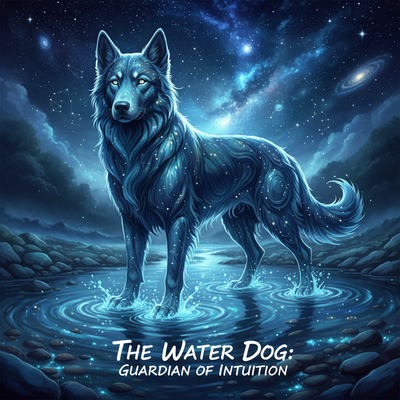
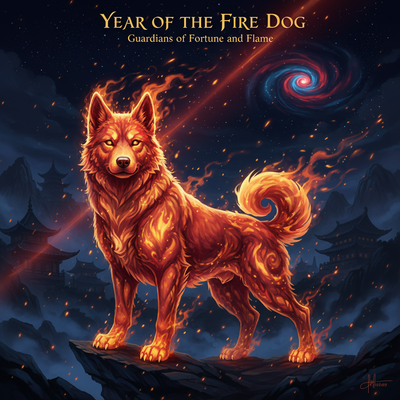
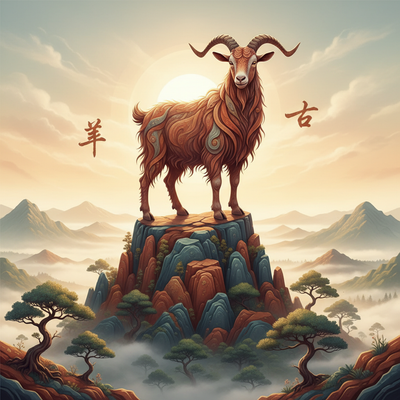
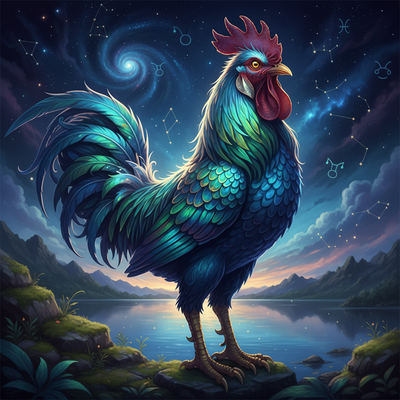
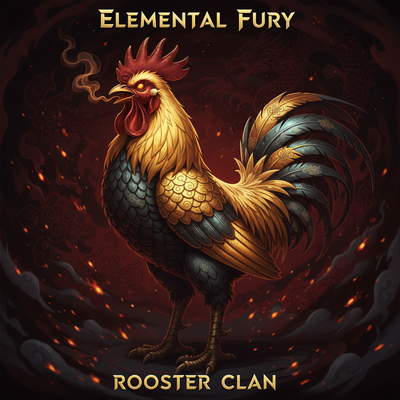
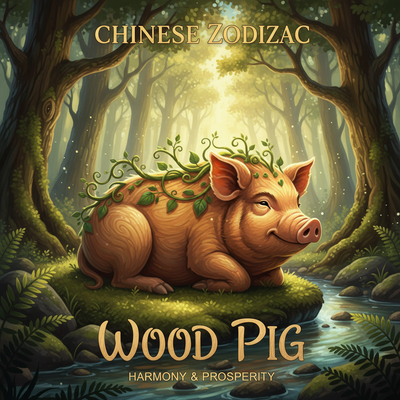
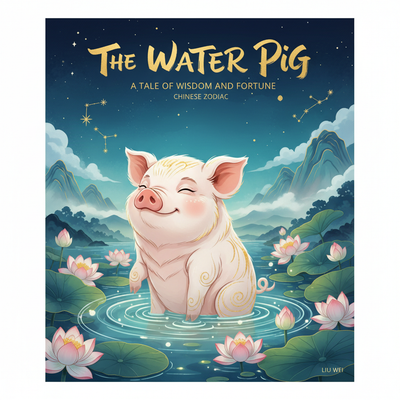
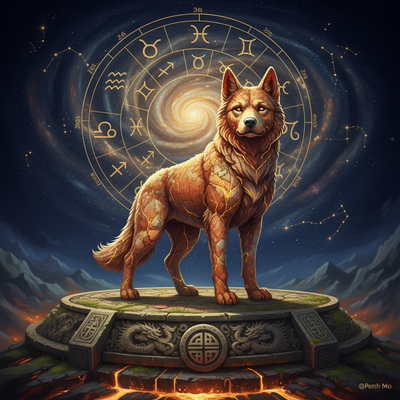









0 comments